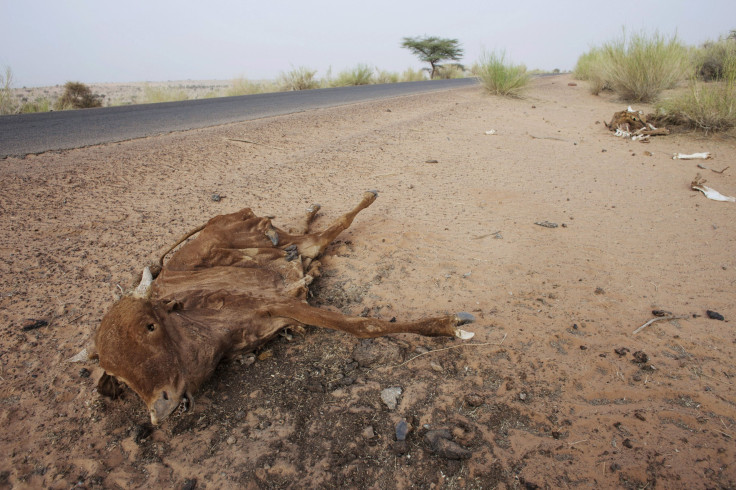Aid Agencies Desperate For Funding As Food Crisis Drags On In The African Sahel

The United Nations food aid agency is falling tens of millions of dollars short of its fundraising goal to combat food insecurity in the African Sahel, leaving 11 million people facing severe nutritional crises in one of the world's most unforgiving regions.
The Sahel is a belt of semi-arid land just south of the Sahara Desert, which stretches across the breadth of the African continent and passes through more than a dozen countries. Rainy weather tends to swing up from the South from June through September, but decades of low -- and increasingly erratic -- precipitation have taken a toll on agricultural output. With the exception of five sporadic good years, rainfall has been below historical average levels since the 1970s.
The year 2011 saw near-normal precipitation, yielding a slightly better 2012 harvest. But, having already faced decades of low production, which killed livestock and made fruitful investments impossible, many farmers were still at a disadvantage last year. The UN Food and Agriculture Organization, or FAO, estimated that 18.7 million people faced extreme food crises in 2012, and hundreds of thousands of people -- mostly children -- died.
The FAO appealed for $113.1 million in funding this year, but has only received $19.4 million to date.
"Funding is needed to provide seeds, fertilizer and small agricultural tools to farmers for the next agricultural season, which runs from October 2013 to April 2014; to strengthen storage, processing and transportation of agricultural goods; and for nutrition education," the agency said in a statement. "To support the region's pastoralists, funding is also needed for livestock food supplements, animal health campaigns, herd restocking and technical support to improve livestock management."
Decades of disappointing rainfall is only partly to blame for the Sahel's food shortages this year.
Farming communities have also been thrown into turmoil by security problems, due in part to the 2011 Libyan revolution, which led to an overflow of weapons into the sparsely populated region. Militant groups caused the most havoc in Mali and Nigeria, where insurgencies disrupted livelihoods and uprooted hundreds of thousands of people.
The resulting decrease in agricultural productivity -- and increased difficulties in trading across borders -- raised food prices, so that subsistence farmers facing low harvests were even more hard-pressed to secure food for their families.
And, climate change has only exacerbated these difficulties. Rising temperatures are slowly expanding the reach of the Sahara Desert, threatening the fragile balance of biodiversity in the Sahel region, and producing unpredictable weather patterns that leave farmers scrambling to adjust.
There are no signs that the Sahel's deadly food shortage will get better anytime soon, leaving aid agencies like FAO facing massive nutritional crises with only a fraction of the funds needed to combat them.
© Copyright IBTimes 2024. All rights reserved.
Join the Discussion





















